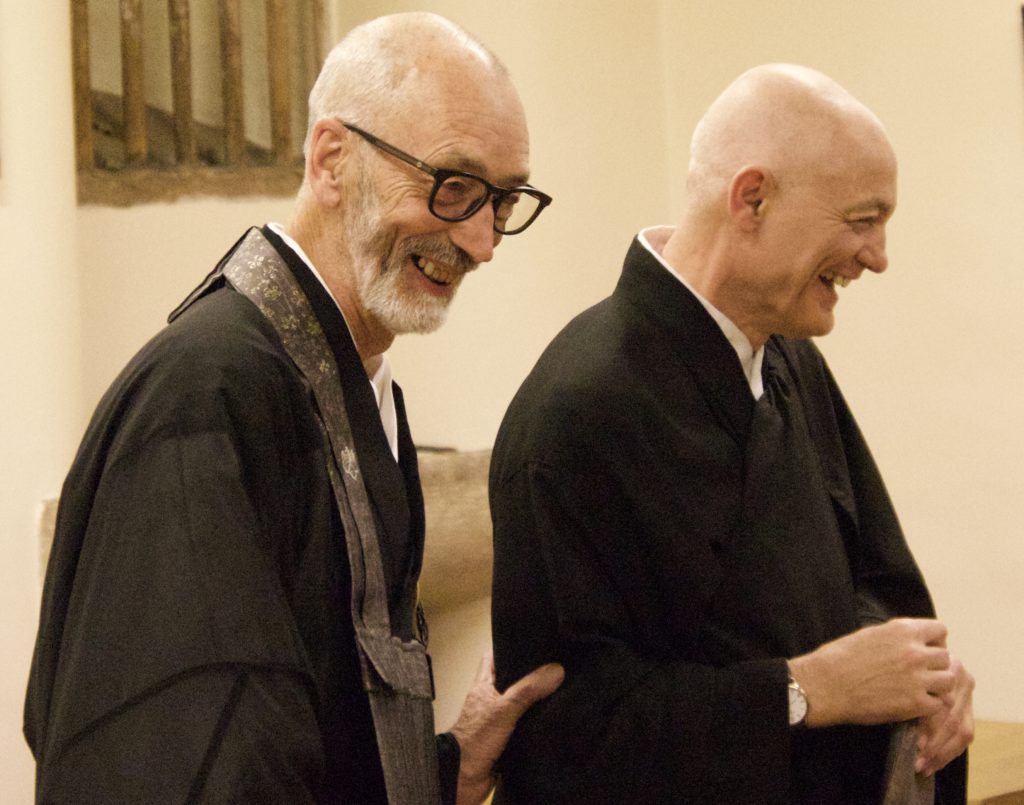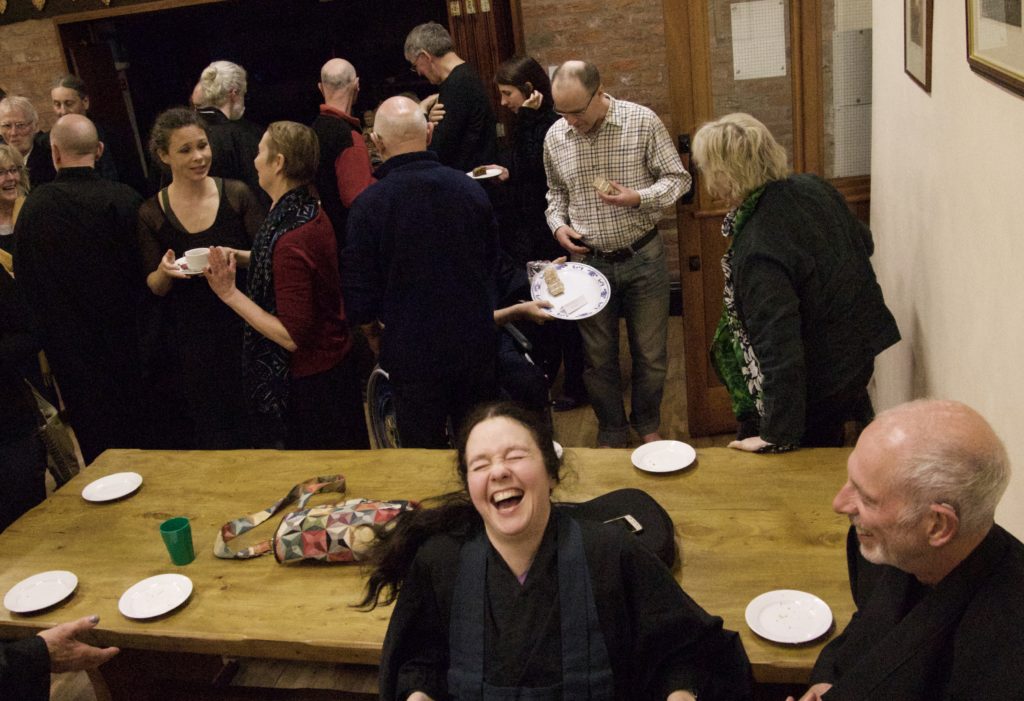Lineages illustrate the variety of ways in which Zen can be taught and lived. Including disagreements, conflicts and sometimes downright animosity between and within different interpretations – a lineage is also bound up with status. And with money. Navigating this landscape brings its challenges.
“Home” is ideally a place of safety, trust and security. But “home” is perhaps inevitably also a place of broken promise; we are all imperfect, and who can live up to the ideals of an ideal home? A home can still be a refuge, a place we feel welcome and appreciated and where we can build the confidence to face the world. However, a home can also shut us off, be a place of deceit, of trust misplaced, and, in the worst case, abuse. Spiritual homes are in a class of their own. Spirituality is heady stuff. The power a spiritual leader can acquire over his or her followers is generally well known. However, at a personal level such power, damaging or at least limiting though it may be, can be experienced as love, security and privilege. On the other hand, we need some structure and guidance to keep to the path. Lineage shopping to find the right spiritual home can be limiting too.
It is a bit of a conundrum. A spiritual quest requires care and balance and insight which we do not always have. In fact, it is precisely these qualities we want to develop and cultivate. So a home can be very helpful. But what comes first, the quest or the right home? Do we need a good home to practise, or do we find the right home because of the practice? And what is “the right home” anyway?
In my limited experience, I think I have passed through “lineage homes” which seemed closest and most convenient to me at the time, and I have ended up with a home which seems right, at least for now. I started sitting with Genpo when he first began visiting Britain. I learned a lot from him, but I also realised that his style of practice and teaching was not really for me, mostly because it seemed hard to accommodate life with small children. We were also moving from London to Edinburgh and had to leave the London group. In Edinburgh we found a Soto group affiliated to Jiyu-Kennett’s monastery-based Order of Buddhist Contemplatives. The group bought a flat in our neighbourhood and attending regular meetings was very easy and convenient. We became “lay ministers”, a role developed to make long-time commitment to the practice visible to the lay congregation. I learned a lot from this “home” too, but after a while I began to think this one was not really for me either. And we were once again on the move, this time back to Norway. Chris googled to see what had happened to the people we sat with in London, and up came StoneWater. We have been practising with StoneWater now for 10 years. It is not close, it is definitely not convenient, but it is “home”.
Here I want to beat the drum for StoneWater as a “good home”. I have three main reasons, which all boil down to a mixture of responsibility, freedom and fun. Firstly, the emphasis on Sangha seems to make for a flat authority structure, and this structure engenders my trust and draws me in. There is no one teacher or master that calls all the shots, although there is firm leadership and a clear framework for what the Sangha is to represent. There are several people besides teachers who are invited to teach – there is no one “true” interpretation of the dharma. They and we hold each other to account. We are all responsible for the wellbeing of the Sangha. I think it would be difficult for grave breaches of trust to take place in this arrangement where power is dispersed. There is of course conflict, although I am not close enough to their details. However, conflict does not spread to the Sangha as a whole, and I assume that a good deal of generosity from all parties is involved in its resolution. A “good home” lets people go with a blessing and goodwill when the time is right.
Secondly, nobody tells me what the Answer is, only that it is my responsibility to find it for myself. I am kept to that responsibility, in subtle and not so subtle ways. There is no wriggling out of it. Irritating though it may be at times, discipline is essential to the development of practice.
Thirdly, this is where StoneWater’s disarming dose of a good sense of humour comes in as an essential addition to the mix. For example, an injured Liverpool football player was added to the Sesshin merit list at the time of a decisive match. And another example: during a Lakes retreat a dispute arose between two participants over responsibility for the wood supply. It ended with one of the participants walking out of the room and good humouredly giving the finger, a gesture which elicited a comment in broad Scouse: “For some people, Zen just doesn’t work!!”
Who can resist?
Did I end up with StoneWater when my practice had developed to a point when I could make myself a(t) home? Or did StoneWater pick me up at a point when I needed a “home”? And will I move on to another home at some point? Who knows, and it is probably not that important. At the risk of being trite, it’s the journey that counts – a journey that brings us right up against our attachments. We have to appreciate what we have, but we also have to be ready to let it go. The journey risks losing depth and purpose without the backdrop of a “home”.


